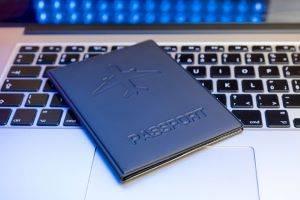 People in the United States have the expectation that their Constitutional rights will be protected in encounters with law enforcement officials. The Fourth Amendment provides protection against unreasonable searches, and this typically means that before police officers or other officials can search a person’s home, vehicle, or electronic devices, they must either receive consent from the person, or they must obtain a search warrant that is based on probable cause that the person has committed a crime. While these rights apply to people within the United States, many people do not realize that when traveling internationally, their phones, laptop computers, or other electronic devices may be subject to searches by customs agents, and in many cases, these searches are performed without obtaining warrants or receiving consent from a device’s owner.
People in the United States have the expectation that their Constitutional rights will be protected in encounters with law enforcement officials. The Fourth Amendment provides protection against unreasonable searches, and this typically means that before police officers or other officials can search a person’s home, vehicle, or electronic devices, they must either receive consent from the person, or they must obtain a search warrant that is based on probable cause that the person has committed a crime. While these rights apply to people within the United States, many people do not realize that when traveling internationally, their phones, laptop computers, or other electronic devices may be subject to searches by customs agents, and in many cases, these searches are performed without obtaining warrants or receiving consent from a device’s owner.
Concerns about the increasing use of warrantless searches by customs agents have been raised by advocates for privacy and civil liberties. In 2017, the Customs and Border Patrol (CPB) conducted more than 30,000 searches of electronic devices at U.S. borders, which was a massive increase from about 8,500 searches in 2015. Current CBP policies allow agents to open a person’s device and search through its contents, and agents can confiscate a device for up to five days without providing a reason for doing so.
A number of lawsuits have been filed against the Department of Homeland Security by people who have been subject to these types of searches. In one case that is currently being heard by the First Circuit Court of Appeals, a group of 11 people are challenging the CBP’s policies, claiming that their First and Fourth Amendment rights were violated by border searches. The plaintiffs are all either U.S. Citizens or lawful permanent residents (Green Card holders), and customs officers conducted searches of their devices without obtaining warrants or accusing them of any crimes. In some cases, devices were confiscated and kept for multiple weeks or months.
A federal judge ruled in the plaintiffs’ favor in November of 2019, finding that customs agents should have reasonable suspicion of criminal activity before conducting searches. The judge also ruled that searches should be limited to looking for “digital contraband” such as child pornography rather than evidence of other types of crimes that may be present on a device.
During the appeal, the plaintiffs’ attorney argued that customs officers should not be given broad exceptions to the requirement to obtain search warrants, and these searches could also affect people’s free speech if they believed that agents could access their personal information. The attorney for the Justice Department argued that limiting agents’ ability to conduct searches could affect their ability to fight criminal activity. While the appeals court has not yet issued a decision in the case, it seems likely that it will uphold the requirement for customs agents to have reasonable suspicion of criminal activity before conducting searches.
Information obtained through a search of a person’s electronic devices could potentially be used as evidence in a criminal case. If you are facing charges based on a search of your phone, computer, or other devices that was conducted without your consent or without obtaining a search warrant, you will want to understand how to protect your rights. At the Woolf & Ross Law Firm, LLC, we can help you build a successful defense strategy, and we will fight to make sure evidence that was obtained illegally cannot be used against you. Contact our Connecticut criminal defense attorney at 860-290-8690 to set up a free consultation today.
Sources:
https://www.courthousenews.com/judges-grapple-with-phone-laptop-searches-at-us-customs/
https://www.aclu.org/cases/alasaad-v-wolf-challenge-warrantless-phone-and-laptop-searches-us-border
 50 Founders Plaza
50 Founders Plaza

